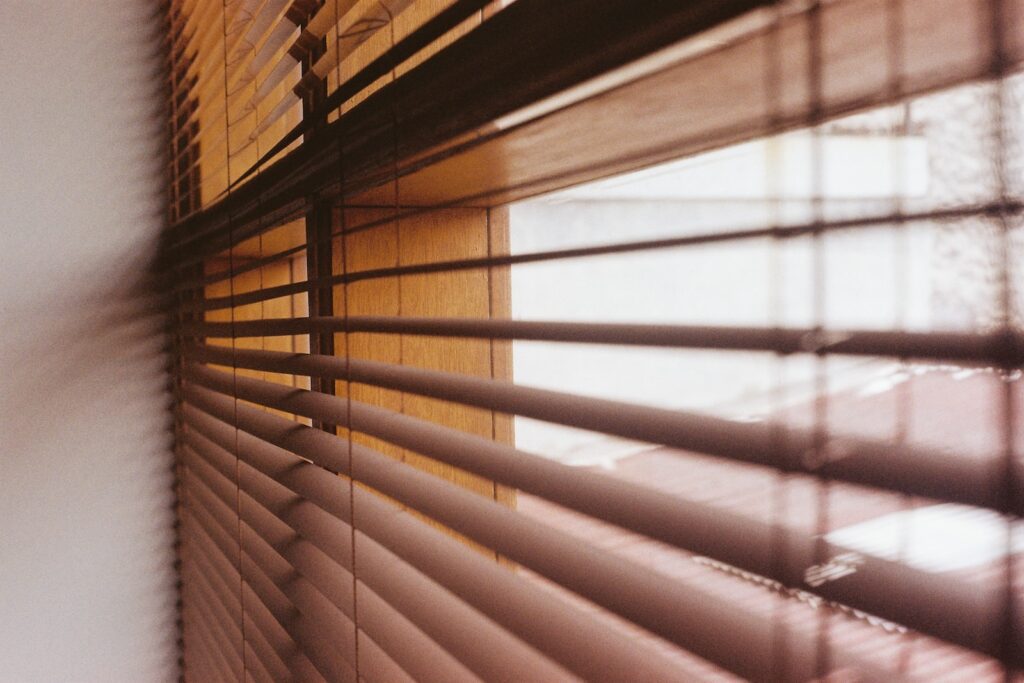Are you tired of feeling a draft every time you sit next to a window? Have you considered investing in blinds to help insulate your home? Many homeowners wonder if blinds are an effective solution to keep their homes warm during the winter months and cool during the summer. In this article, we will explore whether blinds really do help insulate windows and how they can improve the energy efficiency of your home.

How Do Blinds Insulate Windows?
Blinds can help insulate windows in several ways. First, they create an additional layer of insulation between the window and the interior of the room. This layer helps to reduce heat loss during the winter months and heat gain during the summer months. Second, blinds can help to reduce drafts around windows. By blocking air flow, they can help to keep the interior of the room at a more consistent temperature.
Benefits of Blinds for Insulation
Blinds offer several benefits when it comes to insulation. One of the most significant benefits is that they can help to reduce your energy bills. By reducing heat loss and heat gain, your HVAC system won’t have to work as hard to maintain a comfortable temperature in your home. This can lead to significant cost savings over time.
Another benefit of blinds is that they can help to improve the comfort level in your home. When windows are poorly insulated, it can create areas of the home that are too hot or too cold. By installing blinds, you can help to create a more comfortable environment throughout your home.
Types of Blinds for Insulation
When it comes to selecting blinds for insulation, there are several options to choose from. One popular option is cellular shades, which are designed with a honeycomb-shaped structure that helps to trap air and provide additional insulation. Another option is roller shades, which can be made with insulating materials to help reduce heat loss and gain.
Do Blinds Work Better Than Other Window Treatments?
Blinds are not the only window treatment option that can help to improve insulation. Other options, such as curtains and drapes, can also provide additional insulation. However, blinds have several advantages over these other options. For example, they are typically easier to clean and maintain than curtains or drapes. They also offer more control over the amount of light and privacy in a room.
Blinds vs. Curtains for Insulation
When comparing blinds to curtains for insulation, there are several factors to consider. One of the main advantages of curtains is that they can be made with thicker, insulating materials. However, blinds can be adjusted to provide just the right amount of insulation for your needs. Additionally, blinds are typically easier to clean and maintain than curtains, which can be a significant advantage for many homeowners.
Blinds vs. Drapes for Insulation
Drapes are another popular window treatment option that can help to improve insulation. Like curtains, they can be made with thicker, insulating materials. However, drapes can be more difficult to clean and maintain than blinds. Additionally, blinds offer more control over the amount of light and privacy in a room, which can be an important consideration for many homeowners.
Conclusion
In conclusion, blinds can be an effective way to improve insulation in your home. They create an additional layer of insulation, reduce drafts, and can help to reduce your energy bills. When selecting blinds for insulation, there are several options to choose from, including cellular shades and roller shades. While blinds are not the only window treatment option that can improve insulation, they offer several advantages over other options, such as curtains and drapes.
Frequently Asked Questions
How do blinds help insulate windows?
Blinds are an effective way to insulate windows. They trap a layer of air between the window and the room, creating an insulating barrier. This barrier helps to prevent heat loss during the winter and heat gain during the summer, making your home more energy-efficient.
Blinds can also help to reduce drafts and air leakage around windows. They create a tighter seal than curtains, reducing the amount of air that can seep through the gaps around the window frame. This can help to keep your home more comfortable and reduce your energy bills.
What type of blinds are best for insulation?
When it comes to insulation, honeycomb or cellular blinds are the best choice. These blinds have a unique design that creates pockets of air, which helps to trap heat inside your home. They are also available in different thicknesses, so you can choose the level of insulation that you need.
In addition to honeycomb blinds, roller blinds and vertical blinds can also provide some insulation. However, they are not as effective as honeycomb blinds because they do not create the same air pockets.
Do blinds help to reduce noise pollution?
Yes, blinds can help to reduce noise pollution in your home. The slats of the blinds can absorb sound waves, reducing the amount of noise that enters your home. This can be especially helpful if you live in a noisy area or near a busy street.
In addition to reducing noise pollution, blinds can also help to increase your privacy. They can be adjusted to control the amount of light that enters your home, while still allowing you to see outside.
Are blinds easy to maintain?
Yes, blinds are relatively easy to maintain. Depending on the type of blinds you have, you may need to dust them regularly or wipe them down with a damp cloth. Some types of blinds, such as roller blinds, can be easily removed and washed.
It is important to follow the manufacturer’s instructions for cleaning your blinds to avoid damaging them. Regular maintenance can help to extend the life of your blinds and keep them looking their best.
Can blinds help to improve indoor air quality?
Yes, blinds can help to improve indoor air quality. Dust and allergens can accumulate on curtains, but blinds can be easily wiped clean to remove any buildup. This can be especially helpful for people with allergies or respiratory issues.
In addition to improving indoor air quality, blinds can also help to regulate the temperature and humidity levels in your home. This can help to prevent mold growth and other issues that can affect your health.
Best Window Blinds And Shades for Insulating Homes
In conclusion, blinds can definitely help insulate windows. By trapping air between the blinds and the window, they create a barrier that reduces heat loss during the winter months and blocks out heat during the summer months. This can lead to lower energy bills and a more comfortable living space.
It’s important to choose the right type of blinds for your windows and climate. Heavy, insulating blinds like cellular or honeycomb blinds work best in very cold climates, while lighter blinds like roller or roman shades are better for milder climates.
Overall, blinds are a cost-effective and environmentally-friendly way to improve the insulation of your windows. By reducing heat loss and gain, they can help you save money on your energy bills and create a more comfortable home environment. So why not consider installing blinds on your windows today?


